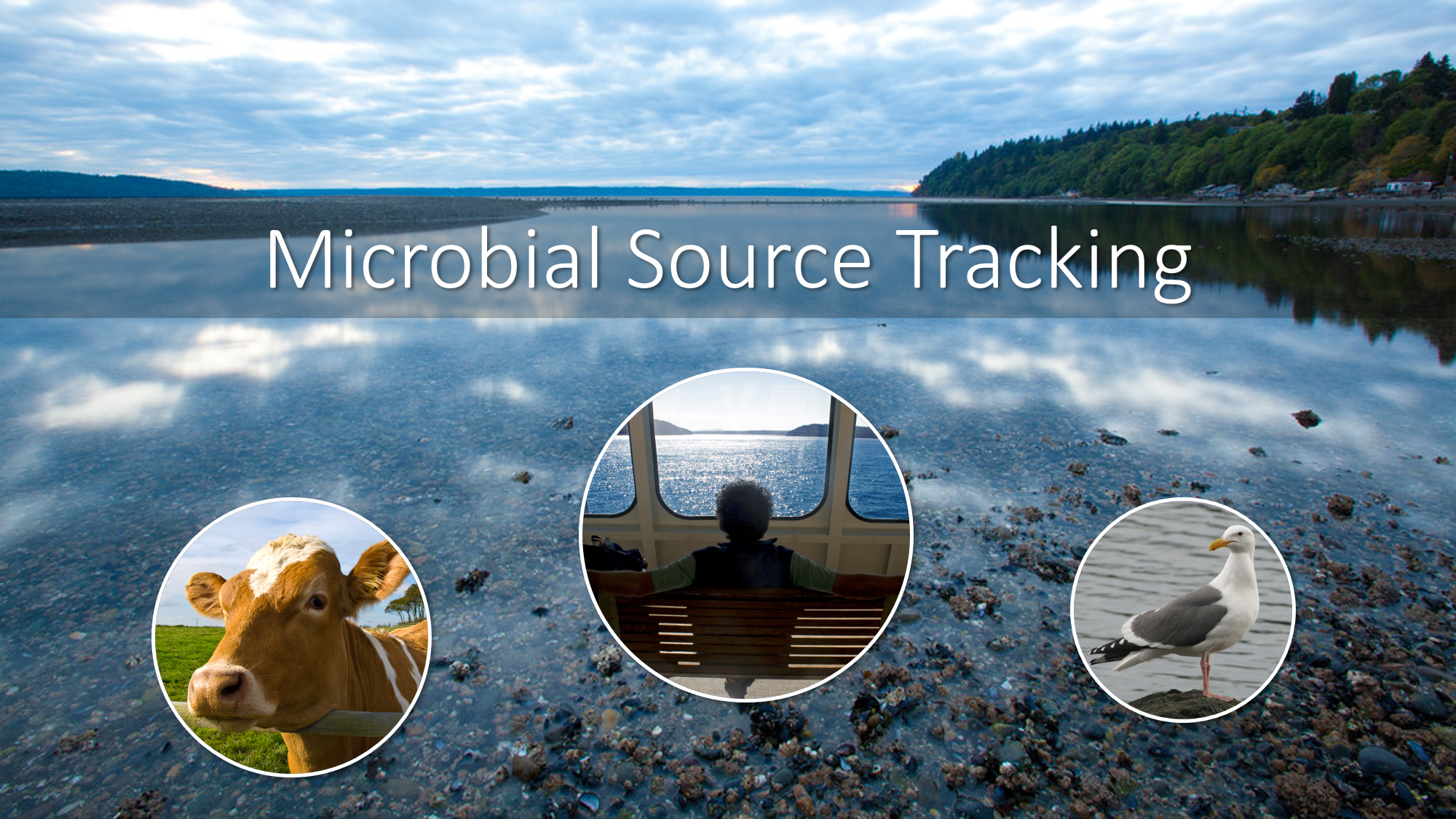Friday, September 12 | 9:30 am – 12:30 pm PT on Zoom
Co-hosted with the Shellfish SIL
Effective microbial source tracking is critical for safeguarding public health, restoring shellfish beds, and targeting pollution prevention efforts. Join leading researchers and fellow practitioners to explore emerging tools, regional efforts, and practical guidance to track and reduce fecal pollution. The workshop will include insights on:
- Best practices for designing microbial source tracking studies
- Emerging monitoring innovations, including a pilot for an E. coli risk sensor
- Regional project spotlights and panel discussion, including an update on GEMSTONE (Genomic Ecological Microbial Source Tracking for Oceans Nature and the Environment)
Learn from leading researchers at the University of Arizona and Southern California Coastal Water Research Project (SCCWRP) and connect with peers to discuss how microbial source tracking can better inform water quality management actions in Puget Sound.
This event is free, but registration is required.
